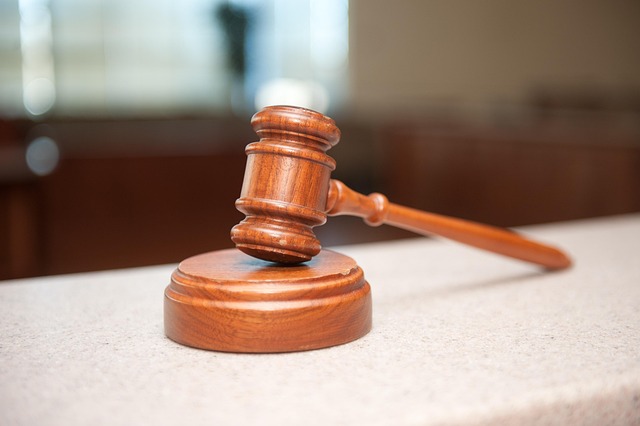The RF Securities Industry Regulation is a complex legal framework designed to maintain fairness, transparency, and stability in financial markets, with a primary focus on preventing fraud, protecting investors, and ensuring market integrity. In the context of criminal law, particularly securities fraud cases, plea bargains are a strategic alternative to trials. Plea bargains offer swift resolution, cost savings, and reduced uncertainty, while trials provide a fair hearing and open defense but are lengthy and costly. Both methods, when used strategically, contribute to maintaining fairness and stability in financial markets. While plea bargains can lead to more favorable resolutions, successful white-collar defense strategies require creative legal arguments and compelling presentations to balance deterrence with positive outcomes.
The RF Securities Industry Regulation is a critical aspect of maintaining market integrity and protecting investors. This article delves into the intricate world of financial crime enforcement, focusing on plea bargains within the criminal law framework. We explore how plea bargain agreements impact the securities fraud landscape, comparing their advantages and disadvantages against a trial. By analyzing these dynamics, we gain insights into strategies that balance individual rights with robust investor protection.
- Understanding RF Securities Industry Regulation: An Overview
- The Role of Plea Bargain in Criminal Law Regarding Securities Fraud
- Advantages and Disadvantages of Plea Bargain vs. Trial for Accused Individuals
- Comparative Analysis: Impact on Market Integrity and Investor Protection
Understanding RF Securities Industry Regulation: An Overview

The RF Securities Industry Regulation is a complex web of laws and guidelines designed to maintain fairness, transparency, and stability in financial markets. Understanding this regulatory landscape is crucial for participants, as it dictates how securities are traded, invested in, and protected. At its core, these regulations aim to prevent fraudulent activities, protect investors, and ensure market integrity—a challenge that’s especially prominent in the dynamic world of finance where complex transactions occur at lightning speed.
Navigating this regulatory environment requires a deep understanding of not just the rules but also their nuanced applications. For instance, when compared to the criminal justice system, where a Plea Bargain Vs Trial plays a significant role, securities regulations offer unique paths for resolving disputes and enforcing compliance. Successful white collar defense strategies often involve achieving extraordinary results through innovative legal arguments and persuasive presentations, ultimately aiming to strike a balance between deterrence and winning challenging defense verdicts.
The Role of Plea Bargain in Criminal Law Regarding Securities Fraud

In the realm of criminal law, particularly when it comes to securities fraud, a key strategy often employed is the plea bargain. This process involves accused individuals or entities agreeing to admit guilt in exchange for reduced charges or sentencing. The Plea Bargain Vs Trial debate is significant in the securities industry as it can greatly impact potential outcomes and consequences. By accepting a plea bargain, defendants can avoid lengthy and costly trials, which are often complex due to the intricate nature of financial crimes. This strategy has proven effective in achieving extraordinary results, ensuring that wrongdoers face accountability while allowing law enforcement and prosecutors to allocate resources efficiently across the country.
The role of plea bargains is pivotal in navigating the legal landscape surrounding securities fraud. They offer a balance between the need for justice and the practical considerations of court proceedings. In the context of philanthropy and political communities, where transparency and trust are paramount, these agreements can help restore faith in financial markets by promptly addressing fraudulent activities. However, critics argue that plea bargains may not always lead to complete disclosure of information, potentially leaving some aspects of a fraud scheme undetected. Therefore, striking the right balance between swift resolution and comprehensive justice remains a delicate task for legal professionals.
Advantages and Disadvantages of Plea Bargain vs. Trial for Accused Individuals

In the realm of criminal law, the decision between a plea bargain and a trial presents a delicate balance for accused individuals. A plea bargain offers a strategic advantage by potentially reducing sentencing and avoiding the uncertainty and costs associated with a full-scale trial. This can be particularly appealing in high-stakes cases, such as those involving white collar and economic crimes, where achieving extraordinary results often hinges on resource allocation and legal strategy. The drawback lies in the sacrifice of an individual’s innocence plea and the possibility of a harsher sentence if the court disagrees with the agreed-upon terms.
Conversely, going to trial provides a defendant with the right to a fair and public hearing, allowing them to present their defense openly and challenge the prosecution’s case. However, trials can be lengthy, expensive, and outcome is never guaranteed. In many cases, plea bargains result in more favorable outcomes for both parties, as they streamline legal proceedings and focus on resolving the matter efficiently. Yet, the potential trade-off of admitting guilt may weigh heavily on an individual’s conscience, especially when facing serious charges.
Comparative Analysis: Impact on Market Integrity and Investor Protection

In the realm of RF Securities Industry Regulation, a comparative analysis between plea bargain and trial in criminal law offers insightful perspectives on market integrity and investor protection. While plea bargains facilitate swift resolution, enabling regulatory bodies to swiftly address violations and deter future misconduct, trials provide an opportunity for a thorough examination of evidence and arguments. This rigorous process can enhance transparency and accountability, reinforcing the stability of financial markets.
Achieving extraordinary results in regulatory enforcement often hinges on navigating complex legal landscapes. Successful prosecution through trial, particularly in winning challenging defense verdicts, serves as a powerful deterrent, instilling confidence among investors. Conversely, plea bargains, though efficient, may not carry the same weight in terms of investor protection. However, both strategies, when employed strategically and fairly, contribute to maintaining integrity within the respective business environments they govern.
In conclusion, the regulation of the RF securities industry is a complex landscape that demands a nuanced understanding of plea bargains versus trials within criminal law. While plea bargains offer efficiency and cooperation in securing market integrity, they must be balanced against potential disadvantages for accused individuals and their impact on investor protection. A comprehensive analysis reveals that both approaches have unique strengths and weaknesses, emphasizing the need for a balanced approach to maintain a fair and robust securities market. The ongoing dialogue between regulatory bodies, legal professionals, and industry participants is crucial in navigating these complexities and ensuring the best outcomes for all stakeholders.






